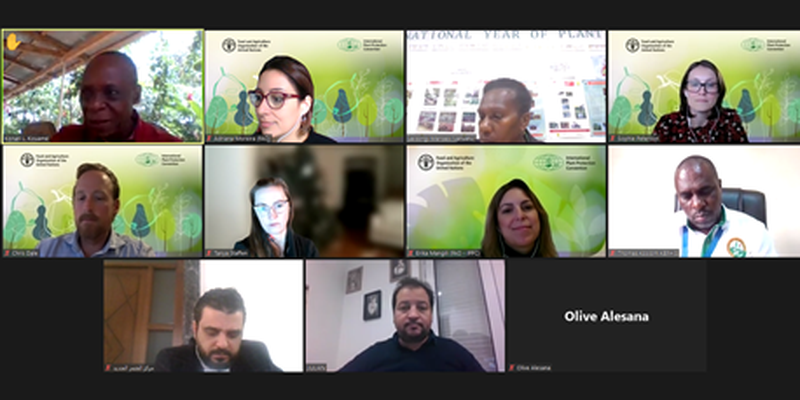IPPC Focus Group on Safe Provision of Food and Other Humanitarian Aid discusses work programme
Posted on Fri, 16 Dec 2022, 12:07

Rome, 16 December 2022. The Commission on Phytosanitary Measures (CPM) Focus Group on Safe Provision of Food and Other Humanitarian Aid (FGFA) concluded its second meeting to discuss submitted materials on imported consignments of humanitarian aid. Held virtually on 8 December, the meeting was attended by members and representatives of the CPM Bureau, the IPPC Standards Committee and the IPPC Implementation and Capacity Development Committee. Representatives from the World Food Programme and regional plant protection organizations have yet to be selected.
Provision of humanitarian aid supplies during emergencies has the potential to carry pests which can cause long-term impacts on communities, the environment and on economies. It is even more crucial to manage pest risk in countries experiencing humanitarian disasters where food insecurity can become a risk, setting back progress on achieving the Sustainable Development Goal 2 on zero hunger. The focus group was established in April 2022 at the CPM-16 primarily to develop a standard on The Safe Provision of Food and Other Humanitarian Aid.
At the recently concluded meeting, the group reviewed its terms of reference and discussed its work programme. It also discussed materials that were submitted on imported humanitarian aid that have been intercepted and refused due to the high number of pests detected.
The group proceeded with the selection of its Chairperson and the Vice-chairperson, respectively Leisongi Manses (Vanuatu) and Sophie Peterson (Australia and representative of the IPPC Standards Committee).
The group concluded its meeting by defining the next steps for the face-to-face meeting which will take place in Nadi, Fiji in February 2023. The meeting will be structured to go into details of its tasks, specifically the pros and cons in developing International Standards for Phytosanitary Measures (ISPMs) and associated materials to help countries and the plant health community to better manage the phytosanitary risks in humanitarian aid. The group highlighted that developing an ISPM is currently seen as a potential solution to the difficulties that countries face during emergencies, including the lack of political framework. The IPPC Secretariat aims to have support from countries in developing the ISPM and raising public awareness through communications and advocacy.
The call is still open to submit information material and case studies on food and other humanitarian aid being able to carry plant pests until 25 January 2023. More information: https://www.ippc.int/en/core-activities/standards-setting/calls-and-consultations/calls-for-papers-and-studies/

